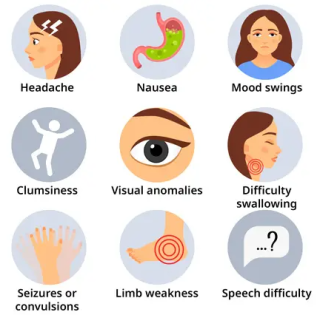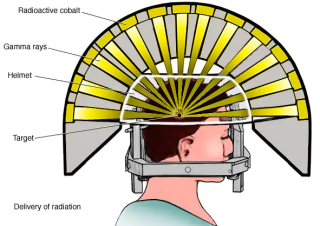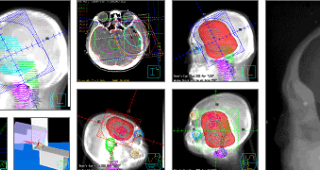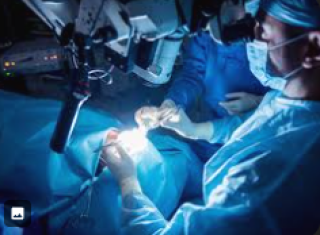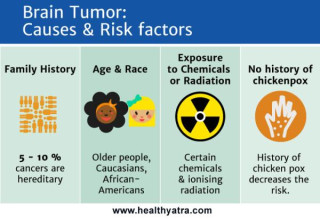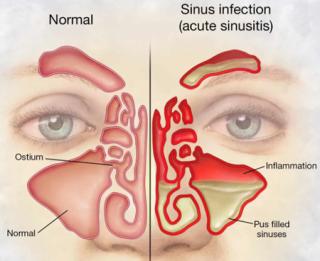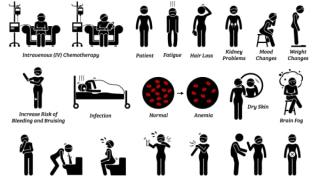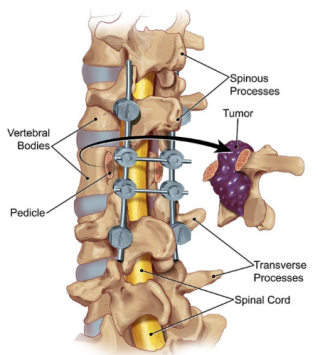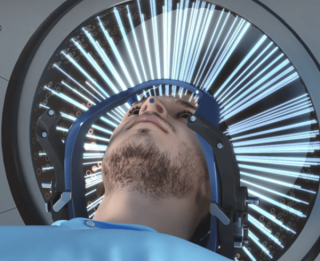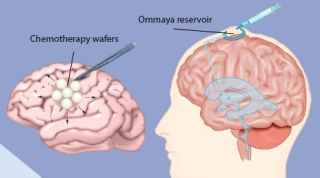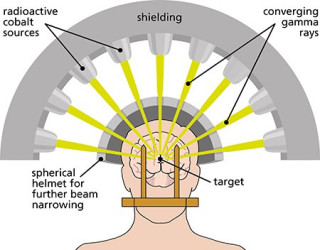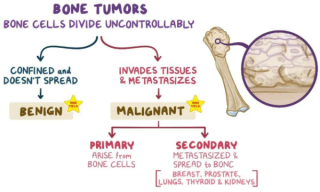What are the symptoms of Brain Tumors?updated at Nov 11, 2025 1,550 1,550 Brain tumor symptoms are highly variable, |
Precision Treatment: Understanding Stereotactic Radiosurgery for Brain Tumorscreated at May 04, 2009 1,418 1,418 Stereotactic radiosurgery (SRS) is a precise radiation therapy technique used to treat brain tumors and other lesions.It delivers a highly focused, |
Understanding Radiation Therapy for Brain Tumorscreated at May 04, 2009 1,473 1,473 Radiation therapy for brain tumors uses high-energy radiation to kill cancer cells and shrink tumors.This can be delivered externally through a linear accelerator (external beam radiation therapy) or internally via implanted radioactive seeds (brachytherap... |
Understanding Surgery for Brain Tumors: A Comprehensive Guidecreated at May 04, 2009 1,381 1,381 Brain tumor surgery aims to remove as much of the tumor as safely possible while minimizing damage to healthy brain tissue.The approach varies depending on the tumor's location, |
Unraveling the Enigma: Exploring the Causes of Brain Tumorscreated at May 03, 2009 1,494 1,494 The precise causes of brain tumors remain largely unknown, |
Navigating Clinical Trial Decisions for Head and Neck Cancer Treatmentcreated at May 09, 2009 1,296 1,296 Clinical trial decisions for head and neck cancer treatment depend on several factors, |
Exploring Treatment Options Beyond Surgery for Head and Neck Cancerscreated at May 09, 2009 1,278 1,278 Treatment options for head and neck cancers beyond surgery include radiation therapy, |
Exploring Antibiotics for Sinus Infections: Understanding Treatment Optionsupdated at Nov 07, 2025 1,551 1,551 Sinus infections, |
Exploring the Rise in Sinusitis: Understanding the Factors Behind the Increaseupdated at Nov 08, 2025 1,400 1,400 The Alarming Increase in Sinusitis CasesIn recent years, |
What are the commonest Lyme Disease Symptoms at onset?updated at Nov 08, 2025 1,545 1,545 Lyme disease, |
Are there Clinical Trials available for Vulvar Cancer?updated at Nov 09, 2025 1,449 1,449 Clinical trials for vulvar cancer exist, |
Will I be able to adjust to Valva Cancer well?created at May 05, 2009 1,399 1,399 Adjusting to a vulvar cancer diagnosis and treatment is a deeply personal journey, |
Side Effects of Vulvar Cancer Chemotherapyupdated at Nov 08, 2025 1,428 1,428 Chemotherapy for vulvar cancer can lead to a variety of side effects, |
Radiation Therapy Side Effects of Vulvar Cancerupdated at Nov 09, 2025 1,502 1,502 Understanding Side EffectsRadiation therapy is a common treatment for vulvar cancer, |
Side effects of Vulvar Cancer Surgeryupdated at Nov 11, 2025 1,602 1,602 Curative surgery for vulvar cancer, |
Exploring Three Vulvar Cancer Treatmentscreated at May 05, 2009 1,297 1,297 Three common treatments for vulvar cancer include surgery, |
Vulvar Intraepithelial Neoplasia as Risk Factors for Vulvar Cancerupdated at Nov 08, 2025 1,507 1,507 Vulvar intraepithelial neoplasia (VIN) represents the abnormal growth of cells within the vulvar epithelium.It's classified as a precancerous condition, |
Navigating Ovarian Cancer Treatment - Key Questions to Ask Your Doctorcreated at May 05, 2009 1,413 1,413 Ovarian cancer treatment depends on the stage, |
How is cancer of the cervix treated?updated at Nov 22, 2025 1,698 1,698 Cervical Cancer Treatment OptionsTreatment for cervical cancer is highly individualized, |
Navigating the Side Effects of Cancer Treatmentcreated at May 04, 2009 1,517 1,517 Cancer treatment, |
Understanding the Link: Vinyl Chloride, updated at Nov 13, 2025 |
What are the Side Effects of Treatment for Colorectal Cancer?updated at Nov 08, 2025 1,482 1,482 Side effects from colorectal cancer treatment are highly variable, |
Surgery for Colorectal Cancerupdated at Nov 13, 2025 1,378 1,378 Surgery is frequently the primary and sometimes the sole treatment approach for colorectal cancer.The specific surgical procedure employed is dictated by the tumor's location and size. Partial Colectomy: The Standard ProcedureThe most common surgical inter... |
What should I ask my doctor when diagnosed with endocrine cancer?created at May 04, 2009 1,301 1,301 Diagnosing endocrine cancer involves a combination of methods, |
What are the side effects of treatment for Endocrine Cancer?created at May 04, 2009 1,231 1,231 Side effects of endocrine cancer treatment, |
Surgery for Spine Tumorscreated at May 04, 2009 1,314 1,314 Surgery for spine tumors aims to remove the tumor, |
Gamma Knife & Stereotactic Radiosurgerycreated at May 04, 2009 1,582 1,582 Gamma Knife and stereotactic radiosurgery are advanced, |
Essential Questions to Ask Your Doctor About Brain Cancer Treatmentcreated at May 04, 2009 1,262 1,262 Navigating a diagnosis of brain cancer can be overwhelming, |
Understanding the Side Effects of Brain Tumor Treatmentcreated at May 04, 2009 1,457 1,457 Brain tumor treatments, |
Clinical trials for Brain Cancercreated at May 04, 2009 1,257 1,257 Clinical trials for brain cancer are research studies that test new treatments, |
Chemotherapy for Brain Cancercreated at May 04, 2009 1,277 1,277 Chemotherapy for brain cancer involves using drugs to kill cancer cells, |
Stereotactic radiosurgery for Brain Cancercreated at May 04, 2009 1,266 1,266 Stereotactic radiosurgery (SRS) is a non-invasive type of radiation therapy that delivers highly focused beams of radiation to a precise point in the brain to target brain tumors, |
What is brain cancer?created at May 03, 2009 1,247 1,247 Brain cancer is a disease in which malignant (cancerous) cells form in the tissues of the brain.It encompasses a wide variety of tumors, |
Exploring Treatment Options for Bone Cancer: A Comprehensive Guidecreated at May 03, 2009 1,553 1,553 Treatment for bone cancer depends on several factors including the type and location of the cancer, |
Demystifying Bone Tumors: Understanding Benign and Malignant Varietiescreated at May 03, 2009 1,330 1,330 Bone tumors are growths that develop in bone tissue, |
What is the difference between primary bone cancer and secondary bone cancer?created at May 03, 2009 1,300 1,300 Primary bone cancer originates in the bone itself, |
What should I do if I find a lump while performing a monthly breast self-exam?created at May 03, 2009 1,317 1,317 Finding a lump during a breast self-exam doesn't automatically mean it's cancerous, |
Understanding Your Risk: How Likely Are You to Get Breast Cancer?created at May 03, 2009 1,316 1,316 Your risk of developing breast cancer depends on many factors, |
Recognizing the Red Flags: Warning Signs for Breast Cancercreated at May 03, 2009 1,397 1,397 Warning signs of breast cancer can include a new lump or thickening in the breast or underarm, |
The basic information for Stomach cancercreated at May 03, 2009 1,381 1,381 Stomach cancer, |
